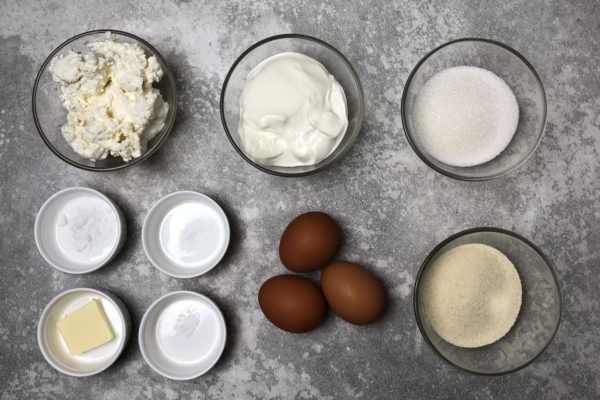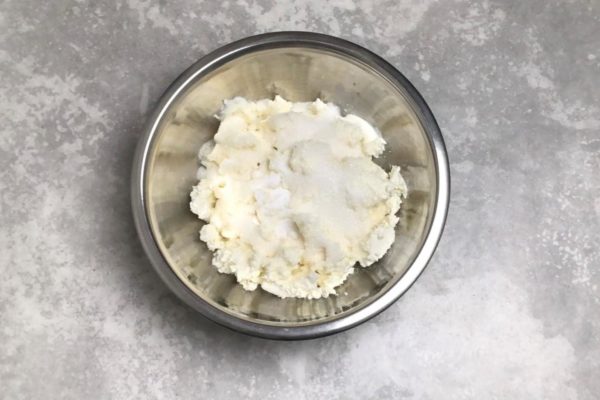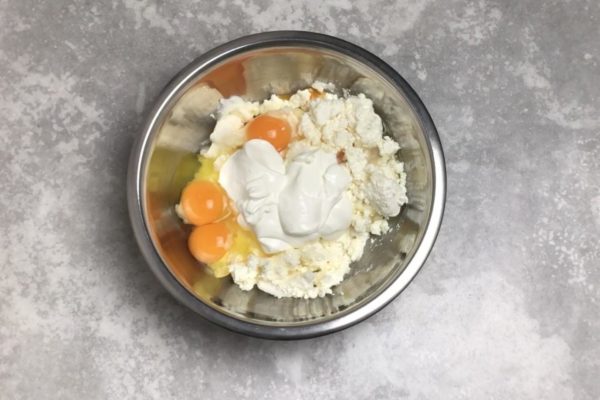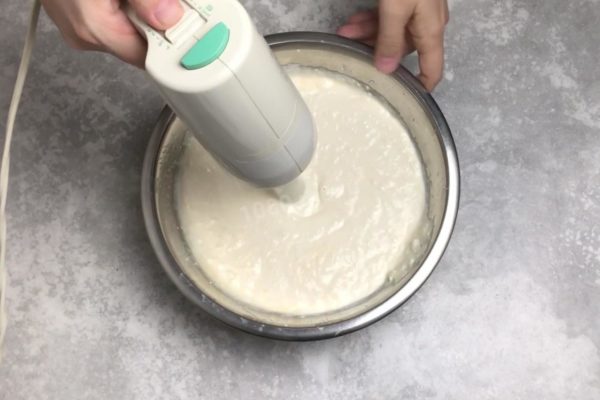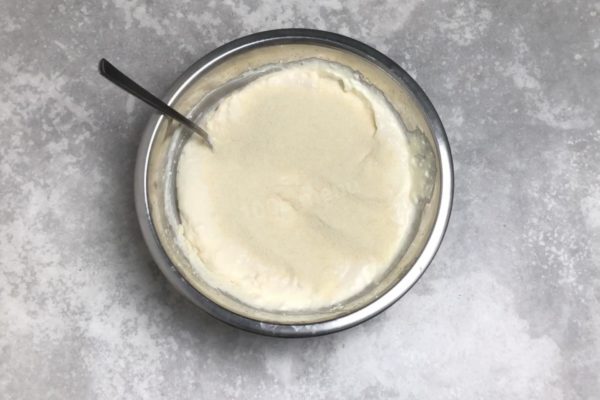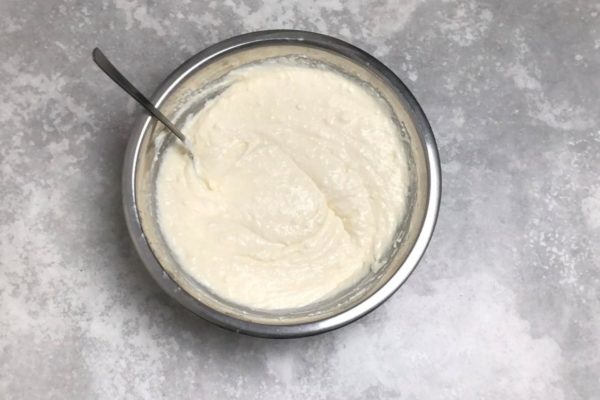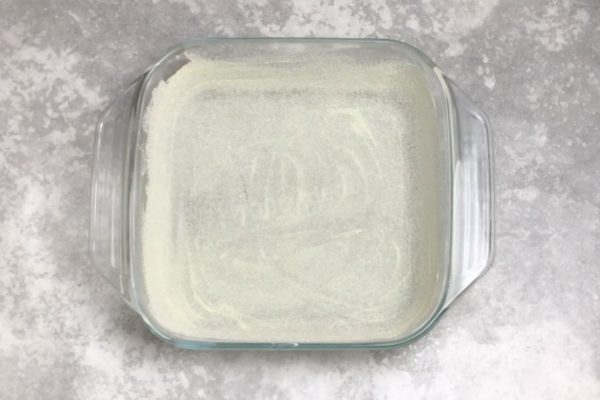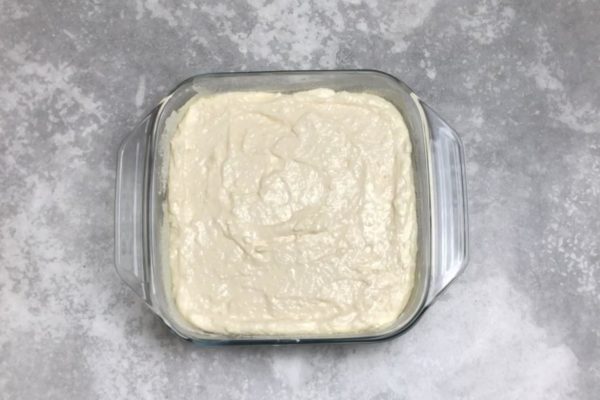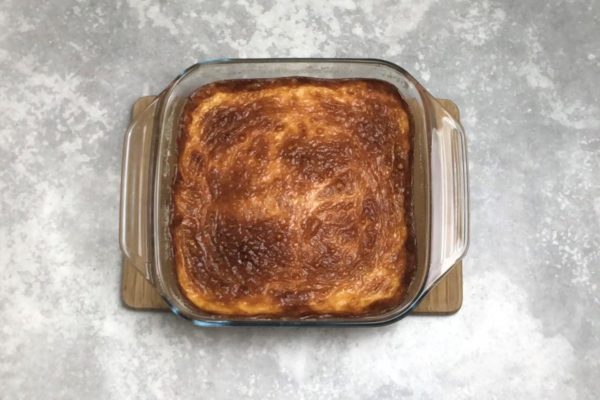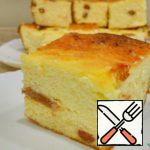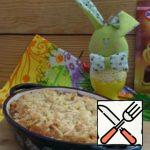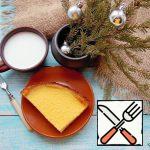| Prep Time | 15 minutes |
| Cook Time | 1.5 hours |
| Servings |
|
- 600 gram Cottage cheese
- 150 gram Sour cream
- 3 pieces Eggs
- 4 tablespoon Sugar
- 4 tablespoon Semolina
- 1 teaspoon Soda
- 0.25 teaspoon Vanilin
- Salt to taste
Ingredients
Ingredients:
|
- Place the cottage cheese in a bowl. If you have an immersion blender, use it to blend all the ingredients. If not, strain the cottage cheese through a sieve to make it homogeneous. Add sugar, baking soda (for fluffiness), salt (for flavor), and vanilla extract (for aroma). Check additional resources at the end of the recipe for guidance on selecting cottage cheese and using baking soda.
- Crack the eggs into the cottage cheese. Use larger eggs, or increase their quantity if using smaller ones. Eggs contribute to the casserole's fluffiness, so don't reduce them. If you don't have a blender, beat the eggs with sugar separately, then add them to the main mixture. Incorporate sour cream, considering the moisture level of your cottage cheese (wet or dry).
- Bake the casserole in an oven preheated to 180°C in the top-bottom mode for approximately 30-40 minutes, or until the top becomes golden brown. To check if it's done, insert a skewer into the casserole at multiple points; if it comes out dry, the casserole is ready. Allow the finished casserole to cool completely before removing it from the mold.
The casserole has a wonderfully tender texture, almost reminiscent of a soufflé. It maintains its shape well after baking, making it an excellent recipe.
Feel free to get creative with your casserole by adding various dried fruits, berries, or fruits to the mix. Serving it with sour cream and jam is a delightful option.
To ensure a successful outcome for your cottage cheese dough or filling, it's crucial to choose high-quality cottage cheese. The quality of the cottage cheese directly impacts the consistency, taste, and final result of the dish.
Keep in mind that ovens can vary, so the temperature and cooking time may differ slightly from what's indicated in the recipe.
When aiming for a lush and delicate casserole, it's important to note that you shouldn't expect the same level of rise as you would in a yeast cake or sponge cake. The fluffiness of a cottage cheese casserole is influenced by the size of the baking dish you choose. A smaller dish with higher sides will result in a thicker layer of cottage cheese mixture for baking, ultimately yielding a taller finished casserole.

